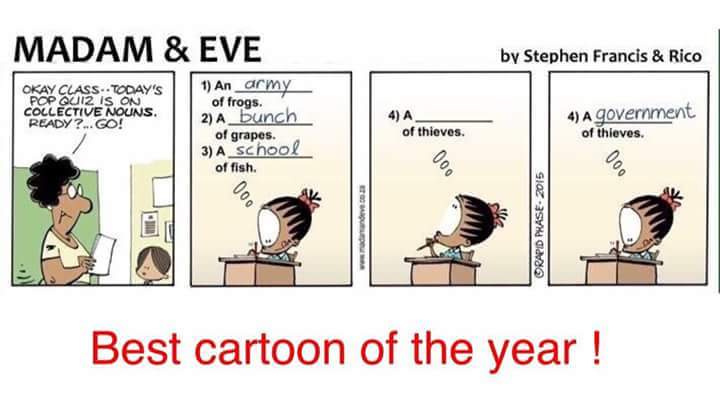Believe me, any Malaysian who has just arrived in UK is likely to have some communication problem with the locals simply because of the way we think, especially if we are not from English speaking family. We are likely to think in Chinese, for example, and translate into English. The sentence structure would be so different that the other party would not be able to follow, which is why it is easier for us to adapt to them then they to us. We are likely to be using a Malay or Chinese word in the sentence without realizing a foreigner has no idea what it was about.
Even in Cantonese, we would have problems communicating with HK people because they are speaking according to proper Chinese characters which can be read in Mandarin, as well as Hokien, Hakka or any Chinese dialect for that matter. Here again, we are likely to use a Malay or local word without realizing it. For example, 'panlai' (from Malay 'pandai'), or 'lok sui' instead of 'lok yee' for 'raining' in Cantonese. Racing car is wrongly called 'hau chau chair' instead of 'phau chair'.
I have mentioned before what we consider as someone 'fluent in English' is likely to be someone who uses Malay or other local words in English sentences which would make his speech incomprehensible to a foreigner not exposed to it. But of course, there are exceptions like Lynne McGready. In her article 'Only in Malaysia' in Mind Our English in The Star, she highlighted some common classic examples of our mistakes (also what I meant by fluent by our standards):
Follow you home. My first encounter with this expression was in a small town in Perak. My host wanted to tell me that she was going to drive me back to my hotel. Instead, she said: “Lynne, don’t worry I will follow you back to the hotel.” Had our plans changed? Was I going with someone else? Would she be following us in her car? I asked: “Our plans seem to have changed. Who will I be going with?” I was reassured that our plans remained unchanged and I did not pursue the use of expression, (after all she was being kind enough to drive me around her hometown.)
However, eight years since this incident, I am still being “followed home” or “followed to the airport” or “followed to work” in the same car!
Send you back. A very similar experience, but this confused me even more the first time I heard it. This time I thought “not only are my staff going to ‘send’ me with someone else, but we are also going ‘back’ – but back to where? Was I going back to Australia, my apartment, back in time?” I had no idea, until someone explained that “back” meant, “Home of course!” (The face was reading, “Idiot Mat Salleh!”). Got it! So the word “back” in Malaysia means home, right?
Borrow me some money. Admittedly, a few people have “borrowed me” a few ringgit to buy a drink or lunch in the food court. However, wouldn’t they have preferred to just “loan” me the money? Ladies and gentlemen, boys and girls, can we please either: Lend people money e.g. “Ki, can you lend me RM5 please? I will pay you back tomorrow.” “No way, Lynne! You still owe me RM1 from last month.” Borrow money from people e.g. “Ki, may I borrow RM5 please? I will pay you back tomorrow.” “Sure. I can lend you RM10. I am feeling rich at the moment.”
Last time, Kuala Lumpur was such fun. “It still is!” I respond, but what is this “last time” you’re referring to? The 1950s, 60s or the 70s? Let’s be more specific with the last times we are referring to.
“We want to spend you lunch.” Thank you! I would love to have lunch with you and you can spend your money to buy the lunch this time, but please don’t spend me. We spend money, not people. Besides, why would you pay for lunch with something as priceless as me?
“Do you take beef, Lynne?” “I’m sorry? Take it where? The zoo, perhaps?” Well, yes I do like to eat the occasional steak when I can, but I’ll eat it right here at the table, thanks.
“See first.” My first encounter with this expression caused my head to spin and I mean literally. I was in a meeting with my team and I asked one of them if they would like to lead a particular project. Her response was “See first”. I turned around to look and there was nothing or no one there! Well, perhaps, you wanted to think about it, dear friend, but please don’t wait too long, okay? Meanwhile, I’m changing my glasses so I can see first better.
In conclusion, I know that there are many books about the common mistakes made by Malaysians in speaking English. I have also often asked myself if I am being too pedantic about the incorrect use of “follow” being a standard in Malaysian conversation.
However, my fear is that many teachers not only continue to ignore these errors, but also inject them into their students, meaning there will always have to be folks like me writing long articles to tell them “not to say that.”
We all know every country has its own local expressions and slang for English conversation. Coming from Australia, I know this all too well.
However, I feel it’s also essential to know the difference between local and common English usage, or we risk not being understood or taken seriously by our foreign counterparts. In short, shouldn’t we keep our P’s and Q’s for international conferences, and save our wah’s and lah’s for the coffee shops? See first, and let me know ah.
(just corrected some repetitions pointed out by my good friend...blame it on unfamiliarity with using notebook!)
How should we judge a government?
In Malaysia, if you don't watch television or read newspapers, you are uninformed; but if you do, you are misinformed!
"If you're not careful, the newspapers will have you hating the people who are being oppressed, and loving the people who are doing the oppressing." - Malcolm X
Never argue with stupid people, they will drag you down to their level and then beat you with experience - Mark Twain
Why we should be against censorship in a court of law: Publicity is the very soul of justice … it keeps the judge himself, while trying, under trial. - Jeremy Bentham
"Our government is like a baby's alimentary canal, with a happy appetite at one end and no
responsibility at the other. " - Ronald Reagan
Government fed by the people

Career options

I suggest government... because nobody has ever been caught.
Corruption so prevalent it affects English language?

Corruption is so prevalent it affects English language?
When there's too much dirt...

We need better tools... to cover up mega corruptions.
Prevent bullying now!

If you're not going to speak up, how is the world supposed to know you exist? “Orang boleh pandai setinggi langit, tapi selama ia tidak menulis, ia akan hilang di dalam masyarakat dan dari sejarah.” - Ananta Prameodya Toer (Your intellect may soar to the sky but if you do not write, you will be lost from society and to history.)
Subscribe to:
Post Comments (Atom)
1 comment:
I stumbled upon your blog....you made me laugh! You have great insight and maturity. I hope you do not mind my putting an article of yours in my blog about spending. Will be following your blog!
All the best and keep on writing.
Post a Comment